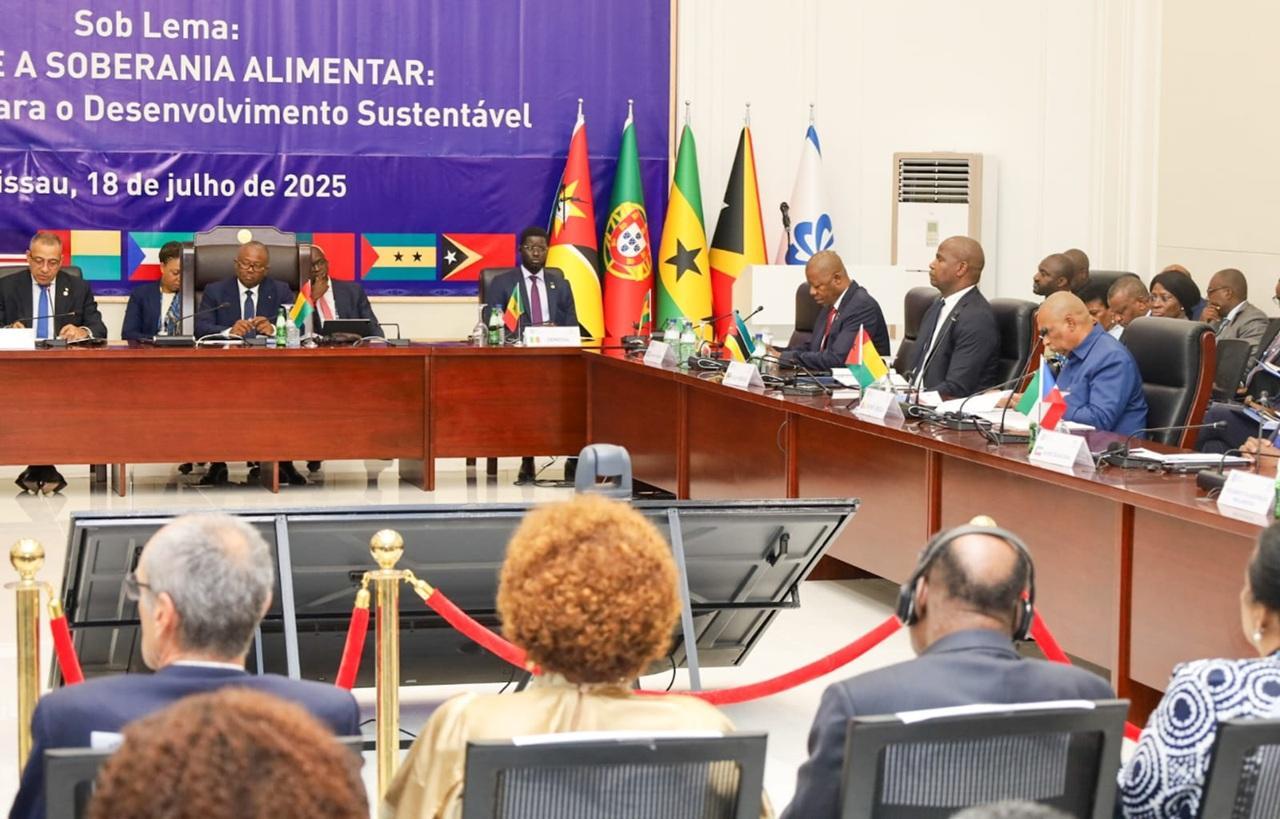Africa-Press – Mozambique. Mozambican President Daniel Chapo on Friday stressed the need to deepen cooperation between members of the Community of Portuguese Speaking Countries (CPLP) to face common challenges such as food insecurity and conflicts that threaten peace.
Speaking after a session of the CPLP heads of state summit in Bissau, Chapo said that hunger weakens the population, leaving it vulnerable to manipulation. It was urgent, he added, to establish synergies between the CPLP member states to ensure food sovereignty as the essential condition for security and peace.
A society where food security is guaranteed, he said, is more resilient and less susceptible to external pressures. Food sovereignty was thus a strategic pillar for peace and security.
“When the population is hungry, it is vulnerable to many things”, declared Chapo, “but when there is no hunger, and the population has food security, it is difficult to manipulate it”.
He praised the development of the CPLP. In the past, it had concentrated on political and linguistic themes, Chapo claimed, but now it is also debating social themes such as food sovereignty, which he regarded as an essential approach for the sustainable development of the member states.
He added that he had used the forum provided by the summit to present Mozambique’s national food security plan, and its food policy for 2024-2030, which he claimed are in line with the CPLP strategy.
The CPLP leaders expressed their concern at today’s armed conflicts and humanitarian crises, and their impact on the civilian population. They reaffirmed their commitment to the United Nations Charter, stressing the importance of multilateralism, dialogue and diplomacy to prevent conflicts and promote peace.
But these words sounded hollow, since one CPLP member, Portugal, prevented the inclusion of a specific reference to the humanitarian crisis in the Gaza Strip in the final declaration from the summit.
During the preparations for the summit, the Portuguese government made clear that it would not support any specific reference to Israeli war crimes in Gaza. Portugal was prepared to condemn the use of hunger as a weapon of war but rejected any specific mention of Gaza.
This infuriated all the Portuguese political parties of the centre and left who said they would demand an explanation from the Portuguese foreign minister, Paulo Rangel.
This refusal to stand up to the far right government of Israel, under Benjamin Netanyahu, adds to longstanding doubts of the relevance of the CPLP. At the Bissau summit, Portuguese President Marcelo Rebelo de Sousa was absent, as were the presidents of Brazil, Luis Inacio Lula da Silva, and of Angola, Joao Lourenco.
For More News And Analysis About Mozambique Follow Africa-Press






